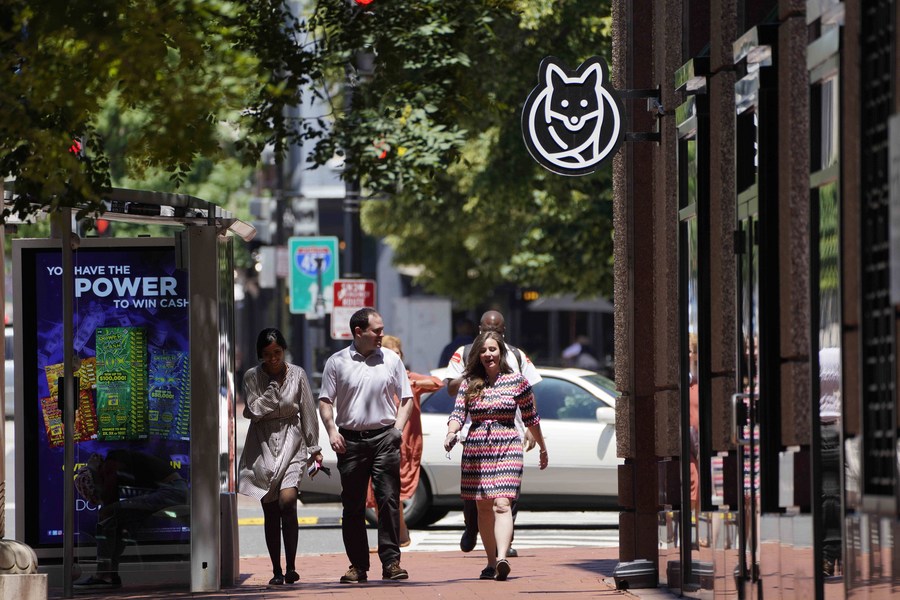
Pedestrians walk on the street in Washington, D.C., the United States, June 17, 2021. (Photo by Ting Shen/Xinhua)
Critics, however, said loosening restrictions on housing causes homes to lose value, in a nation where a family's entire life savings are often wrapped up in the value of their home.
by Matthew Rusling
WASHINGTON, June 20 -- Jen Smith, a homeowner in an affluent suburb outside Washington, D.C., is not happy about U.S. President Joe Biden's plan for neighborhoods like hers.
"There's a low-income development a couple of miles down the road," the manager of a small company, in her late 40s, told Xinhua.
That development, a small-scale bid to bring affordable housing to wide open suburban areas, is the source of unruly teenagers who drive recklessly down the local road, she said.
During summer, she said, many of these low-income teens loiter in front of stores in the local town center, "doing nothing. No summer job, no nothing" - in sharp contrast to the more affluent teens in her development, who spend their time at home studying, she said.
She said the last thing she wants is more low-income housing in her area.
Indeed, having a big house with a yard and a white picket fence is part of the American dream. But Biden's infrastructure bill calling for cities to limit single-family zoning to build affordable housing may change that image.
Biden wants to place more multi-family residences, including apartments and garages converted to living spaces, in suburbs that have always been zoned for single-family units. The president wants to make this part of his 2.3 trillion U.S. dollar infrastructure plan, which would permit smaller lots and multi-family units to be constructed next to a single family house.













